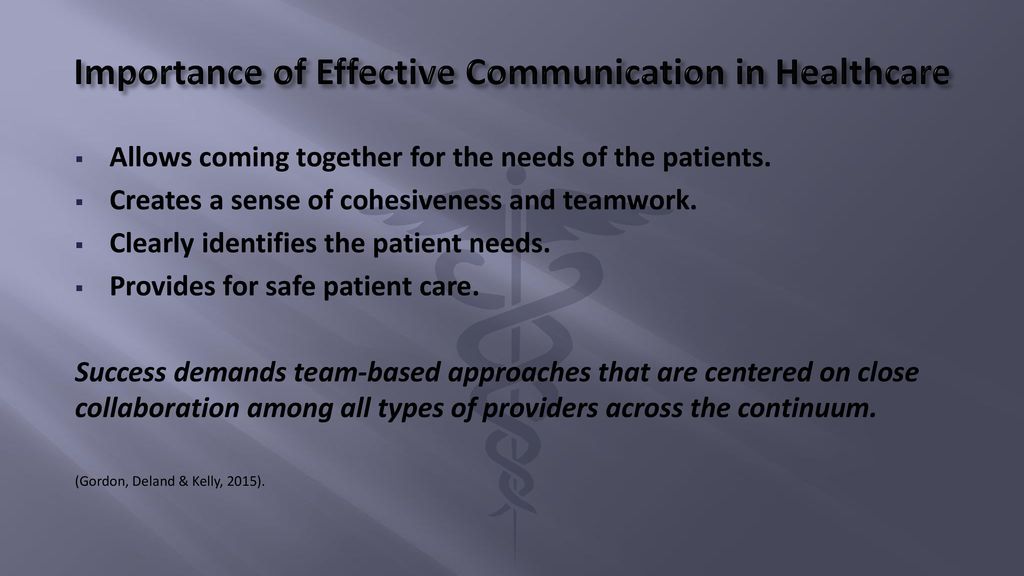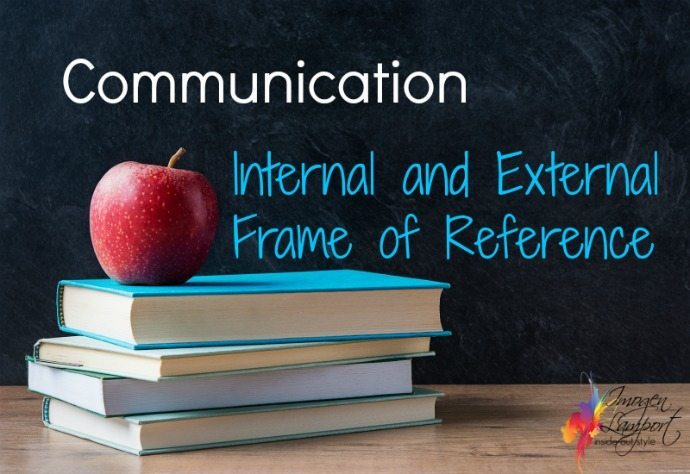Why is Clear Communication Important?
Clear communication is important because it allows the message to be easily understood and prevents misunderstandings and conflicts. It promotes trust, team member loyalty, engagement, improves teamwork and productivity, fuels innovation, resolves issues, and creates better client relationships.
Effective communication is essential for the success of any individual, team, or organization. Effective communication plays a crucial role in various aspects of life, whether it’s in the workplace, business, relationships, or customer service. When communication is clear, it ensures that the intended message is received and interpreted accurately, avoiding any confusion or misinterpretation.
This clarity fosters a mutual understanding between individuals, leading to efficient collaboration, problem-solving, and decision-making. Moreover, clear communication builds trust and strengthens relationships between team members, clients, and customers. It promotes a positive work environment and enhances team morale, loyalty, and engagement. In addition, effective communication fosters innovation by encouraging the sharing of ideas and perspectives, allowing for creativity and growth. Furthermore, clear communication helps resolve conflicts and disputes by facilitating open and honest conversations. It enables individuals to express their thoughts, concerns, and emotions effectively, leading to effective problem-solving and resolution. Additionally, it creates better client relationships by ensuring that their needs and expectations are understood and addressed clearly, ultimately enhancing customer satisfaction and loyalty. Overall, clear communication is vital for effective collaboration, productivity, innovation, and the success of individuals, teams, and organizations. It promotes understanding, trust, and positive relationships while avoiding misunderstandings and conflicts.
Enhances Understanding
Clear communication is important because it enhances understanding. When messages are delivered in a clear and concise manner, there is less room for misinterpretation or confusion, leading to effective communication and better overall comprehension.
Clear communication ensures that the message is easily understood. By effectively conveying information, people are able to grasp the intended meaning without confusion or ambiguity. This has several benefits:
- Misinterpretation can be avoided, leading to better comprehension: When communication is clear, there is a higher likelihood that the receiver will accurately interpret the message as intended. This reduces the risk of misunderstanding and allows for better comprehension of the information being conveyed.
- Prevents misunderstandings and conflicts: Clear communication helps to avoid misunderstandings that can arise from vague or unclear messages. When people understand each other, conflicts and disagreements can be prevented. This promotes a harmonious and productive environment in both personal and professional relationships.
- Ensures effective decision-making: When information is communicated clearly, it enables individuals to make informed decisions based on accurate understanding. Clear communication provides the necessary context and clarity needed to make sound judgments and choices.
- Fosters trust and credibility: When people are able to understand each other clearly, it builds trust and credibility. Clear communication demonstrates transparency and openness, enhancing the overall quality of relationships and interactions.
- Improves efficiency and productivity: Clear communication eliminates the need for repeated explanations or clarification, saving time and effort. When instructions, expectations, and tasks are communicated clearly, it enables individuals and teams to work more efficiently, resulting in increased productivity.
Clear communication enhances understanding by ensuring that messages are easily comprehended, misinterpretation is avoided, conflicts are prevented, informed decisions can be made, trust is fostered, and efficiency and productivity are improved. It is an essential skill that plays a crucial role in various aspects of life and professional settings.
Builds Strong Relationships
Clear communication is important because it builds strong relationships. When messages are easily understood, it promotes trust, teamwork, and client satisfaction, enhancing overall success.
Clear Communication Fosters Trust And Transparency:
- When communication is clear and effective, it helps build trust among individuals or teams. This trust is crucial for fostering strong relationships.
- Clear communication promotes transparency, as it allows information to flow freely without any ambiguity or hidden agendas. This transparency builds trust among team members or business partners, leading to better collaboration and decision-making.
- When there is trust and transparency, individuals feel comfortable expressing their ideas, concerns, or feedback. They are more likely to openly communicate and engage in discussions, leading to stronger relationships both personally and professionally.
Helps In Building Strong And Healthy Relationships:
- Clear communication is the foundation of any strong and healthy relationship, be it personal or professional.
- Effective communication ensures that all parties involved have a clear understanding of each other’s expectations, needs, and goals. This understanding prevents misunderstandings and conflicts, fostering positive relationships.
- When individuals communicate clearly, they are able to express themselves openly and honestly, leading to deeper connections and better mutual understanding. Clear communication allows people to connect on a deeper level and build trust, empathy, and respect with one another.
Prevents Communication Barriers And Promotes Effective Collaboration:
- Clear communication plays a crucial role in preventing communication barriers. When messages are conveyed clearly, there is less room for misinterpretation or confusion.
- By eliminating communication barriers, clear communication promotes effective collaboration and teamwork. It ensures that everyone involved in a project or task has a shared understanding of the objectives, roles, and responsibilities.
- When communication is clear, individuals can exchange ideas, provide feedback, and offer solutions more effectively. This promotes a collaborative environment where everyone feels valued and heard, leading to better decision-making and problem-solving.
Clear communication is vital for building strong relationships. It fosters trust and transparency, helps in building healthy relationships, and prevents communication barriers while promoting effective collaboration. By prioritizing clear communication, individuals and teams can enhance their overall productivity, satisfaction, and success.
Improves Productivity
Clear communication is important because it improves productivity. When messages are concise and easily understood, tasks can be completed efficiently, reducing errors and saving time. Effective communication also fosters collaboration and teamwork, leading to increased productivity in the workplace.
Clear Communication Eliminates Ambiguity And Confusion:
- Miscommunication can arise when messages are unclear, leading to misunderstandings and confusion.
- Ambiguous instructions or unclear expectations can result in team members not knowing exactly what is expected of them or how to proceed with a task.
- When communication is not clear, individuals may make assumptions or fill in the missing information with their own interpretation, which can lead to errors or delays in completing projects.
- Clear communication ensures that everyone involved understands the message in the same way, reducing the potential for confusion and improving overall productivity.
Enhances Productivity By Ensuring Everyone Is On The Same Page:
- Effective communication ensures that all team members have a shared understanding of goals, objectives, and tasks.
- When everyone is on the same page, there is less time wasted on unnecessary back-and-forth or clarification conversations.
- Clear communication allows for efficient collaboration, as team members can work together seamlessly and effectively towards a common goal.
- By ensuring that everyone has the necessary information and understands their role in a project or task, productivity is enhanced, and work can be completed more efficiently.
Saves Time And Reduces Errors Due To Misunderstandings:
- When communication is clear, there is less room for confusion and misunderstandings, resulting in fewer errors.
- Clear instructions and expectations leave less room for interpretation, reducing the likelihood of mistakes or missteps.
- Team members spend less time seeking clarification or resolving misunderstandings, allowing them to focus on their work and be more productive.
- By eliminating the need for repeated communication or correction of errors, time is saved, and tasks can be completed more efficiently.
Remember, clear communication is vital in any setting, whether it be in the workplace, business, or daily interactions. It eliminates ambiguity, enhances productivity, and saves time by reducing errors. By ensuring that everyone is on the same page, tasks and projects can be completed more efficiently, leading to better outcomes and success.
Boosts Success
Clear communication is essential for success as it promotes trust, enhances team member engagement, improves teamwork and productivity, fuels innovation, resolves issues, and creates better client relationships. By effectively conveying information, businesses can boost their overall performance and achieve greater success.
Effective Communication Is Crucial For Achieving Success:
Clear and effective communication plays a vital role in achieving success in various aspects of life, whether it’s in the workplace, business, or personal relationships. When communication is clear and concise, it boosts success by enabling effective decision-making, problem-solving, and overall performance.
Let’s delve deeper into why clear communication is important for boosting success:
Enables Effective Decision-Making And Problem-Solving:
- Clear communication ensures that information is conveyed accurately, allowing individuals to make informed decisions. When team members are on the same page and fully understand the goals and expectations, they can contribute effectively to decision-making processes.
- By clearly expressing thoughts, ideas, and concerns, individuals can collaborate more efficiently and overcome challenges through effective problem-solving strategies.
- When communication is clear, conflicts and misunderstandings are minimized, leading to smoother decision-making processes and problem-solving outcomes.
Enhances Overall Performance And Outcomes:
- Clear communication fosters efficiency and productivity within teams. When instructions, tasks, and goals are communicated clearly, everyone understands their roles and responsibilities, leading to improved performance.
- Effective communication helps in setting clear expectations, timelines, and targets, enabling individuals to work towards achieving common goals. It facilitates coordination and ensures that everyone is on the same page throughout the project.
- Clear communication also promotes accountability and fosters trust among team members. When people can communicate openly and honestly, they are more likely to take ownership of their work and strive for excellence.
Effective communication is instrumental in achieving success in various areas of life. Whether it’s making informed decisions, solving problems efficiently, or enhancing overall performance, clear communication plays a crucial role. By promoting understanding, collaboration, and accountability, it creates a supportive and productive environment where individuals and teams can thrive.
Facilitates Innovation
Clear communication is crucial in facilitating innovation. It allows ideas to be effectively conveyed, understood, and implemented, encouraging creativity and problem-solving within teams and organizations. By eliminating misunderstandings and encouraging collaboration, clear communication promotes an environment conducive to innovation.
Clear Communication Encourages Creativity And Innovation:
Clear communication is vital in fostering creativity and innovation within an organization. When employees are able to express their ideas and thoughts clearly, it creates an environment that nurtures innovation. Here are a few ways in which clear communication facilitates creativity and innovation:
- Allows for the sharing of ideas and feedback openly: When communication is clear, employees feel comfortable sharing their ideas and opinions without fear of judgment or misinterpretation. This open exchange of ideas encourages collaboration and sparks creative thinking.
- Helps in finding unique solutions and improving processes: Clear communication ensures that everyone involved understands the goals and objectives clearly. This clarity enables teams to think outside the box and come up with unique solutions to problems. Additionally, it allows for effective feedback, which leads to continuous improvement and innovation.
- Promotes a culture of innovation: When communication is clear, it helps establish a culture of innovation within an organization. Employees feel empowered to think creatively, take risks, and contribute their unique perspectives. This kind of environment fosters innovation and encourages employees to come up with innovative ideas.
- Enhances problem-solving: Clear communication enables effective problem-solving. Team members can clearly communicate their concerns, discuss potential solutions, and work together to find the best course of action. This collaborative problem-solving approach often leads to innovative solutions that can improve processes and drive business growth.
- Increases employee engagement: When communication is clear, employees feel more engaged and invested in their work. They can see the bigger picture and understand how their contributions fit into the overall goals of the organization. This sense of purpose and engagement drives creativity and innovation, as employees are motivated to find innovative ways to contribute to the company’s success.
Clear communication plays a crucial role in facilitating creativity and innovation within an organization. By promoting open sharing of ideas, enabling effective feedback, and fostering a culture of innovation, clear communication empowers employees to think creatively and find innovative solutions.
This leads to improved processes, increased employee engagement, and ultimately, business growth.
Enhances Customer Satisfaction
Clear communication is important because it enhances customer satisfaction. By effectively conveying messages, businesses can avoid misunderstandings and conflicts, build trust with their customers, and improve overall client relationships.
Clear Communication Is Essential For Satisfying Customer Needs:
- It ensures clear instructions and prompt resolution of issues:
- Clear communication helps eliminate any confusion in instructions, allowing customers to understand what is expected of them.
- When issues arise, clear communication ensures that they are addressed promptly, preventing further frustration or delays.
- It builds customer loyalty and positive brand reputation:
- When customers receive clear communication from a business, they feel valued and understood.
- Clear communication helps establish trust and fosters positive relationships, encouraging customers to return and recommend the brand to others.
- It reduces misunderstandings and improves customer satisfaction:
- Clear communication minimizes the chances of misinterpretation or miscommunication.
- By clearly conveying information, businesses can ensure that customers’ needs are met efficiently and accurately, leading to higher levels of satisfaction.
- It enhances problem-solving capabilities:
- Effective communication allows businesses to gather accurate information from customers, enabling them to better understand and address their concerns.
- Clear communication facilitates collaboration between businesses and customers, leading to more effective problem-solving.
Clear communication plays a vital role in enhancing customer satisfaction. It ensures that instructions are understood, issues are resolved promptly, and customers feel valued. By building trust and reducing misunderstandings, clear communication helps strengthen customer relationships and promotes positive brand reputation.
Minimizes Conflict
Clear communication is important because it minimizes conflict. By effectively conveying messages, misunderstandings can be avoided, leading to better understanding and cooperation among individuals. This promotes a more harmonious and productive environment.
Clear Communication Helps In Resolving Conflicts Efficiently:
Communication plays a crucial role in resolving conflicts in any setting, whether it’s in the workplace, business, or personal relationships. Clear communication minimizes misunderstandings, promotes open dialogue, and fosters mutual understanding. Here’s how clear communication helps in resolving conflicts efficiently:
- Facilitates open and honest discussions: Clear communication allows individuals to express their thoughts, concerns, and emotions openly. When people can communicate transparently, conflicts can be addressed directly, leading to more constructive conversations and solutions.
- Promotes mutual understanding and compromise: Effective communication ensures that each party understands the other’s perspective and concerns. By actively listening and clarifying misunderstandings, individuals can find common ground and work towards a resolution through compromise and collaboration.
- Prevents misunderstandings and escalation: Clear communication helps prevent misunderstandings that can escalate conflicts. When information is communicated clearly and concisely, there is less room for misinterpretation or assumptions, reducing the likelihood of conflicts intensifying.
- Encourages empathy and perspective-taking: Clear communication allows individuals to empathize with and understand the other person’s point of view. This empathy can lead to a more compassionate approach when addressing conflicts, promoting a sense of understanding and respect.
- Enhances problem-solving abilities: When communication is clear, individuals can focus on finding solutions to the conflict rather than getting caught up in arguments or blame. By communicating effectively, parties can brainstorm ideas, evaluate options, and work together to find resolutions that meet everyone’s needs.
- Builds trust and strengthens relationships: Clear communication fosters trust and credibility between individuals. When conflicts are resolved through open and honest communication, it enhances trust and strengthens relationships, making future collaborations and interactions smoother.
Clear communication is essential for resolving conflicts efficiently, as it enables open and honest discussions, promotes mutual understanding and compromise, and prevents misunderstandings and escalation. By prioritizing clear communication, individuals can navigate conflicts more effectively, leading to healthier and more productive relationships.
Supports Effective Leadership
Effective leadership is supported by clear communication, as it promotes trust, team member loyalty, engagement, and improves teamwork and productivity. Clear and effective communication also resolves issues and creates better client relationships, fueling innovation.
Clear Communication Is A Key Trait Of Effective Leaders:
- Effective leaders understand the importance of clear communication and prioritize it in their interactions with team members.
- They have excellent verbal and written communication skills, ensuring that their message is understood by everyone.
- Leaders who communicate clearly can effectively convey their vision, goals, and expectations to their team.
- They eliminate ambiguity and provide clear instructions, enabling their team members to perform their tasks efficiently.
- Clear communication helps leaders establish themselves as credible and reliable, gaining the trust and respect of their team members.
- It allows leaders to express their ideas and thoughts concisely, influencing others and driving them towards achieving common objectives.
- Leadership communication is not just about speaking clearly, but also actively listening and understanding the needs and concerns of team members.
- Effective leaders foster open and transparent communication channels, encouraging team members to share their ideas, thoughts, and feedback.
- By communicating clearly, leaders minimize the chances of misunderstandings, conflicts, and errors within the team.
- Clear communication helps leaders build positive relationships with their team members, creating a supportive and collaborative work environment.
Helps Leaders Convey Their Vision And Expectations Clearly:
- Leaders need to articulate their vision and expectations clearly to inspire and motivate their team members.
- By using clear communication, leaders can effectively communicate their long-term goals and vision for the organization.
- They paint a vivid picture of the desired future state, helping team members understand the purpose behind their work.
- Clear communication enables leaders to explain the strategies, plans, and objectives required to achieve the vision.
- It allows leaders to articulate their expectations regarding performance, quality standards, and deadlines.
- Leaders who communicate their vision and expectations clearly set a clear direction for their team members, reducing confusion and ambiguity.
- By conveying their vision and expectations clearly, leaders ensure that everyone is aligned and working towards the same goals.
- Clear communication helps leaders establish a shared understanding and common purpose among team members.
- It enables leaders to provide regular updates and progress reports, ensuring that everyone is aware of the organization’s direction.
- By communicating their vision and expectations clearly, leaders create a sense of ownership and accountability among team members.
Builds Trust And Inspires Team Members:
- Clear communication is essential for leaders to build trust with their team members.
- When leaders communicate openly and honestly, it creates a sense of transparency and authenticity.
- Clear communication fosters a climate of trust, where team members feel comfortable sharing their ideas, concerns, and feedback.
- Leaders who communicate clearly show respect for their team members’ input, validating their contributions.
- It inspires team members by providing them with a clear understanding of their role and the impact of their work.
- Clear communication helps leaders recognize and acknowledge the achievements and efforts of team members, boosting morale and motivation.
- It enables leaders to provide constructive feedback and guidance, helping team members grow and develop.
- When leaders communicate clearly, team members feel valued, listened to, and supported, leading to increased job satisfaction.
- Clear communication builds strong relationships between leaders and team members, fostering loyalty and commitment.
- It inspires team members to go above and beyond, as they understand the importance and purpose behind their work.
Ensures Efficiency In The Workplace
Clear communication ensures efficiency in the workplace by promoting understanding and preventing misunderstandings or conflicts. It enhances productivity, teamwork, and client relationships while fostering trust, loyalty, and engagement among team members.
Clear Communication Streamlines Workflows And Processes:
- By effectively conveying information and instructions, clear communication helps to streamline workflows and processes in the workplace.
- When employees understand what needs to be done and how to do it, tasks are completed more efficiently and with fewer errors.
- Clear communication ensures that everyone is on the same page, eliminating confusion and reducing the need for clarification or repetition.
- It promotes proper delegation of responsibilities, allowing each team member to focus on their designated tasks without unnecessary overlap or duplication.
- Streamlined workflows and processes lead to increased productivity and a smoother operation overall, benefiting both individual employees and the organization as a whole.
Avoids Unnecessary Delays And Misunderstandings:
- Clear communication plays a crucial role in avoiding unnecessary delays and misunderstandings in the workplace.
- When information is unclear or poorly communicated, it can lead to confusion and misinterpretation, resulting in delays in completing tasks or making decisions.
- Misunderstandings can create conflicts and disagreements among team members, wasting time and energy that could be better spent on productive work.
- By ensuring that messages are concise, specific, and easily understandable, clear communication minimizes the risk of miscommunication and the subsequent setbacks it can cause.
- It promotes efficient collaboration and cooperation, enabling teams to work together smoothly and effectively.
Improves Overall Efficiency And Organizational Performance:
- Clear communication has a direct impact on the overall efficiency and performance of an organization.
- When communication is clear and effective, it reduces the time and effort required to accomplish tasks, leading to improved efficiency.
- It enables employees to make informed decisions and solve problems more efficiently, as they have all the necessary information at their disposal.
- Clear communication fosters a positive work environment, where employees feel comfortable asking for clarification or expressing their ideas and concerns.
- By promoting transparency and trust, clear communication enhances teamwork and collaboration, resulting in improved organizational performance.
Clear communication is vital in the workplace as it streamlines workflows and processes, avoids unnecessary delays and misunderstandings, and improves overall efficiency and organizational performance. It is an essential aspect of effective teamwork and collaboration, ensuring that employees can work together seamlessly and achieve their goals more efficiently.

Credit: communicationmgmt.usc.edu
Overcomes Language And Cultural Barriers
Clear communication is important because it helps overcome language and cultural barriers. By ensuring that the message is understood by the recipient, misunderstandings and conflicts can be prevented, promoting effective communication in various contexts.
Clear Communication Bridges The Gap Between Different Languages And Cultures:
- In today’s globalized world, clear communication is essential to connect people from diverse linguistic and cultural backgrounds. Here’s why it is so important:
- Language barriers: Clear communication helps overcome language barriers by using simple and concise language that can be easily understood by individuals with different language backgrounds. It enables effective communication regardless of the native language of the parties involved.
- Cultural differences: Cultural barriers can hinder effective communication. Clear communication takes into account cultural differences and ensures that the message is conveyed in a way that is culturally sensitive and respectful.
- Translation accuracy: Clear communication eliminates ambiguity and misunderstanding during translation. When the message is clear and concise, it becomes easier to accurately translate it into different languages, ensuring that the original intent of the communication is not lost.
- Non-verbal cues: In cross-cultural communication, non-verbal cues play a significant role. Clear communication takes into account the importance of non-verbal cues and ensures that the message is conveyed in a manner that is culturally appropriate and easily understood by individuals from different cultures.
Enables Effective Communication In Diverse Settings:
- Clear communication is crucial in diverse settings where individuals from different backgrounds come together to collaborate or interact. Here’s how it enables effective communication:
- Workplace diversity: In a multicultural workplace, clear communication fosters better collaboration and teamwork. It ensures that everyone understands their roles, responsibilities, and expectations, minimizing misunderstandings and conflicts.
- International business: Clear communication is vital for successful international business transactions. It enables effective negotiation, contract agreements, and relationship-building across borders.
- Educational institutions: Clear communication is essential for educational institutions with students from diverse cultural backgrounds. It ensures that instructions, explanations, and feedback are easily comprehensible, fostering a positive learning environment.
- Public services: In public services such as healthcare or government agencies, clear communication ensures that individuals from different cultural and linguistic backgrounds can access and understand essential services effectively.
Promotes Inclusion And Cultural Understanding:
- Clear communication promotes inclusion and cultural understanding by ensuring that everyone feels valued and understood. Here’s how it achieves this:
- Breaking stereotypes: Clear communication challenges stereotypes by focusing on individuals’ unique perspectives and experiences, encouraging a more nuanced understanding of different cultures.
- Empathy and respect: Clear communication conveys empathy and respect by considering the cultural nuances and norms of the other person. It fosters an environment where individuals feel comfortable expressing themselves and being heard.
- Building trust: Clear communication builds trust by facilitating open and transparent dialogue. It reduces the chances of misunderstandings and conflicts, enabling individuals from different cultures to build meaningful relationships based on trust and mutual understanding.
- Appreciating diversity: Clear communication celebrates diversity and recognizes the value of different perspectives. It encourages individuals to learn from one another, fostering a culture of acceptance and inclusion.
Clear communication bridges the gap between different languages and cultures, enabling effective communication in diverse settings, and promoting inclusion and cultural understanding. It is a fundamental aspect of effective communication that contributes to successful interactions and relationships in today’s globalized world.
Frequently Asked Questions Of Why Is Clear Communication Important
Why Is It Important To Be Clear In Communication?
Clear communication is important for several reasons. First, it ensures that the intended message is understood by the recipient. When communication is unclear, there is a higher chance of misinterpretation, which can lead to misunderstandings and conflicts. Second, clear communication promotes trust and transparency.
When people can easily understand and trust the messages being conveyed, it enhances relationships and fosters a positive work or business environment. Additionally, clear communication improves teamwork and collaboration, as it allows individuals to effectively share ideas, instructions, and feedback.
It also enhances productivity, as clear instructions and expectations reduce errors and delays. Furthermore, clear communication fuels innovation by encouraging creativity and problem-solving. Lastly, it creates better client relationships by providing clear and concise information, addressing concerns, and ensuring customer satisfaction.
Overall, clear communication is essential for effective collaboration, productivity, trust-building, and successful outcomes.
What Are The Benefits Of Clear And Effective Communication?
Clear and effective communication offers several benefits: 1. It promotes trust and transparency among individuals. 2. It fosters loyalty and commitment among team members. 3. It increases engagement and active participation within the team. 4. It improves teamwork and collaboration. 5.
It enhances productivity and efficiency in completing tasks. 6. It fuels innovation by encouraging the sharing of ideas and perspectives. 7. It helps resolve conflicts and issues by facilitating open dialogue. 8. It creates stronger and better relationships with clients and customers.
Overall, clear and effective communication plays a crucial role in building strong connections, fostering a positive work environment, and driving overall success and growth in both personal and professional settings.
Why Is Clear Written Communication Important In The Workplace?
Clear written communication is important in the workplace for several reasons. Firstly, it ensures that the message being conveyed is easily understood by the recipient. If the message is unclear or ambiguous, it can lead to misunderstandings and confusion, which can negatively impact productivity and teamwork.
Additionally, clear communication helps to prevent conflicts and disagreements. When information is communicated clearly, there is less room for interpretation and misinterpretation. This promotes a more harmonious work environment where everyone is on the same page and working towards the same goals.
Furthermore, clear written communication enhances efficiency and productivity. When messages are concise and easy to comprehend, employees can quickly grasp the necessary information and take appropriate action. This saves time and allows work to be completed more efficiently. Overall, clear written communication in the workplace promotes understanding, collaboration, and productivity, which are all essential for a successful and effective work environment.
What Is Essential To Clear Communication?
Clear communication is essential for several reasons. Firstly, it ensures that the message is understood by the recipient, preventing any misinterpretations or misunderstandings. This helps to avoid conflicts and promotes better working relationships. Secondly, clear communication promotes trust and loyalty among team members.
When everyone is on the same page and understands their responsibilities and goals, it enhances teamwork and productivity. Effective communication also fosters innovation by encouraging the exchange of ideas and feedback. It helps resolve issues and prevents them from escalating into bigger problems.
Additionally, clear communication creates better client relationships by ensuring that expectations are clear and that both parties are aligned. In summary, clear communication is vital for achieving success in the workplace and business, enhancing collaboration, and fostering positive relationships.
Conclusion
Clear communication is undoubtedly crucial in various aspects of life. Whether it’s in the workplace, business transactions, or everyday interactions, effective communication plays a vital role in fostering understanding and avoiding misunderstandings. When messages are unclear, there is a higher chance of misinterpretation, which can lead to conflicts and confusion.
The benefits of clear communication are numerous. It promotes trust among individuals and teams, which is essential for building strong relationships. It also enhances team member loyalty and engagement, fostering a positive work environment. Clear communication improves teamwork and productivity, allowing for better collaboration and achieving goals efficiently.
Additionally, it fuels innovation, as clear communication channels encourage the sharing of ideas and solutions. Furthermore, clear communication helps resolve issues promptly, preventing them from escalating. It also plays a significant role in creating better client relationships, as clear and effective communication builds credibility and rapport.
Clear communication is a fundamental aspect of successful interactions, enabling understanding, trust, and productivity. It’s essential to prioritize clarity in communication to foster positive relationships and achieve desired outcomes.





